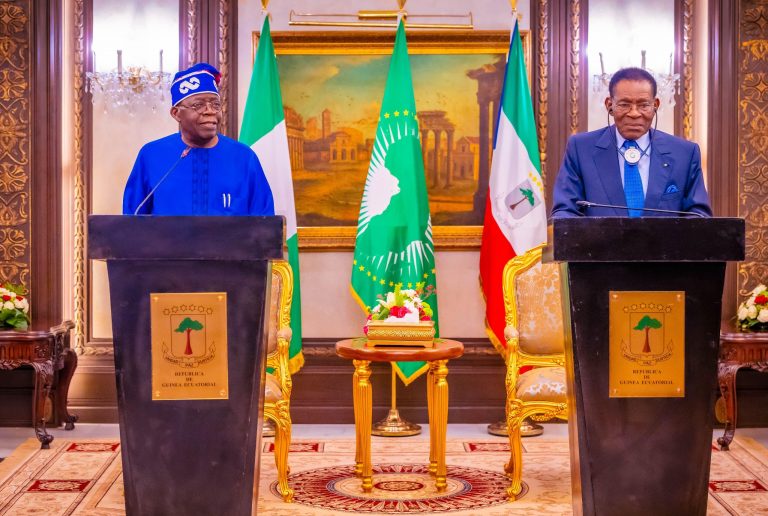President Bola Tinubu has called on African leaders to take decisive and strategic actions to curb the ongoing exodus of skilled professionals from the continent. Speaking during a dinner in his honor at the People’s Palace in Malabo, Equatorial Guinea, on Wednesday night, Tinubu emphasized the need to tackle tribalism, reward merit, and reform outdated judicial systems as part of efforts to retain talent in Africa.
The Nigerian President highlighted the importance of encouraging research and development by providing appropriate incentives. “Why are we complaining about healthcare problems if our doctors cannot have a home on our continent? If our nurses are faced with destitution, and if our judicial system is archaic?” Tinubu questioned.
During his three-day official visit to Equatorial Guinea, Tinubu stressed that African development would only begin when the continent starts seeking internal solutions. He urged leaders to discard tribalism and work collectively to strengthen the continent, promote peace, and harness Africa’s resources for the benefit of its people.
Tinubu also expressed gratitude to his host, President Teodoro Mbasogo of Equatorial Guinea, for the invitation, referring to the visit as a “homecoming” and underscoring the deep ties between both nations. He emphasized the significance of unity and collaboration between African countries, particularly in the face of long-standing conflicts in regions like the Congo and the Sahel.
“We have to work together to make peace the focus of our development,” Tinubu stated, noting that sustainable peace is essential for progress on the continent. He called for immediate action, urging African leaders to prioritize stability and development.
President Mbasogo, in his remarks, expressed appreciation for Tinubu’s visit and called for enhanced collaboration between Nigeria and Equatorial Guinea. He highlighted the historical ties between the two nations and stressed the importance of strengthening bilateral relations, particularly in areas such as education, mining, defence, security, and agriculture.
Before the dinner, both leaders signed an agreement on the Gulf of Guinea gas pipeline project, further solidifying the partnership between the two countries.

